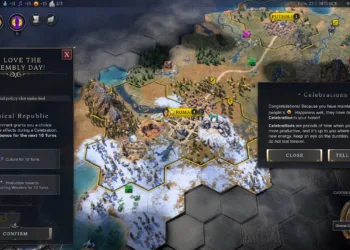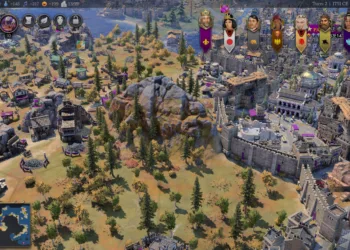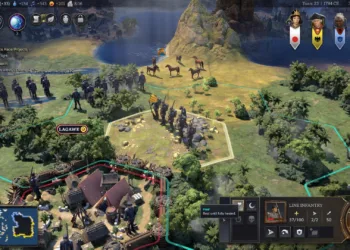Select Language:
If you’re looking for some tips for Civilization 7, we have just what you need to help you grow your empire quickly. Starting with your first city and expanding it into a thriving civilization can be quite challenging, and you’ll face numerous obstacles along the way. It can feel a bit daunting for newcomers, so we’ve compiled some essential Civ 7 tips to guide you through the early game.
1. Start on Scribe Difficulty
Civilization 7 introduces significant changes to the 4X gameplay style, making it a bit tricky even for seasoned players. For this reason, we suggest starting at the Scribe difficulty level, which is the easiest of the six levels available.
This lower difficulty allows you to familiarize yourself with the game’s mechanics at a relaxed pace. With Scribe active, other leaders won’t be as aggressive, giving you the chance to explore both new and familiar systems without added stress.
Once you feel comfortable and have a good handle on the gameplay, consider increasing the difficulty for a more challenging experience.
2. Focus on Building Scouts Early
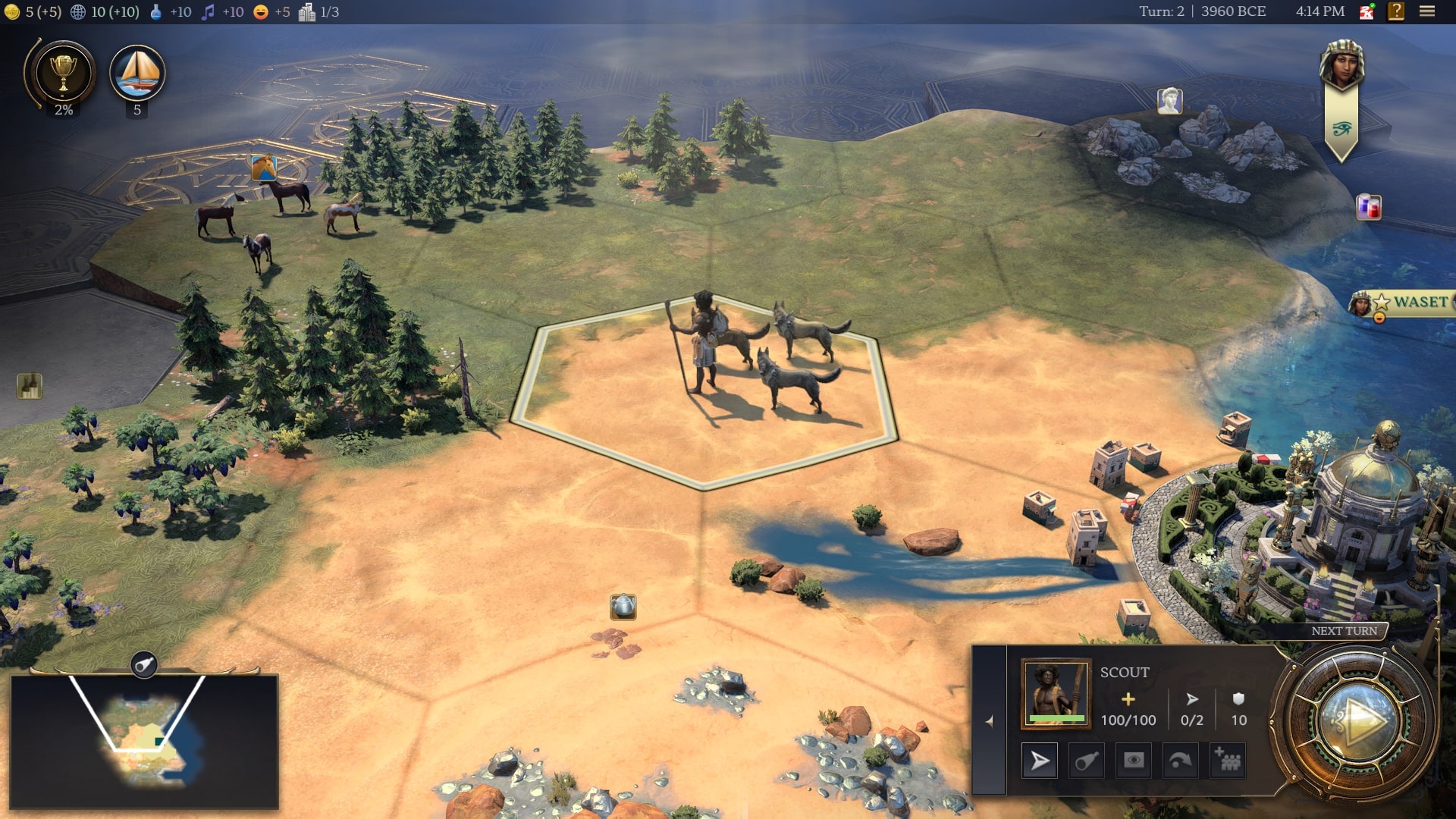
Within your first 10 turns, make it a priority to create a few scout units to explore the territory around you. Scouts are capable of scouting the landscape, uncovering valuable resource tiles, and identifying other civilizations as you establish your main city.
Scouts can move two tiles each turn and have a broader field of vision compared to other early units, making them extremely valuable for exploring the map and identifying good expansion areas.
However, keep in mind that scouts are not equipped for combat. If they encounter an aggressive enemy, you risk losing them.
3. Pay Attention to the Terrain
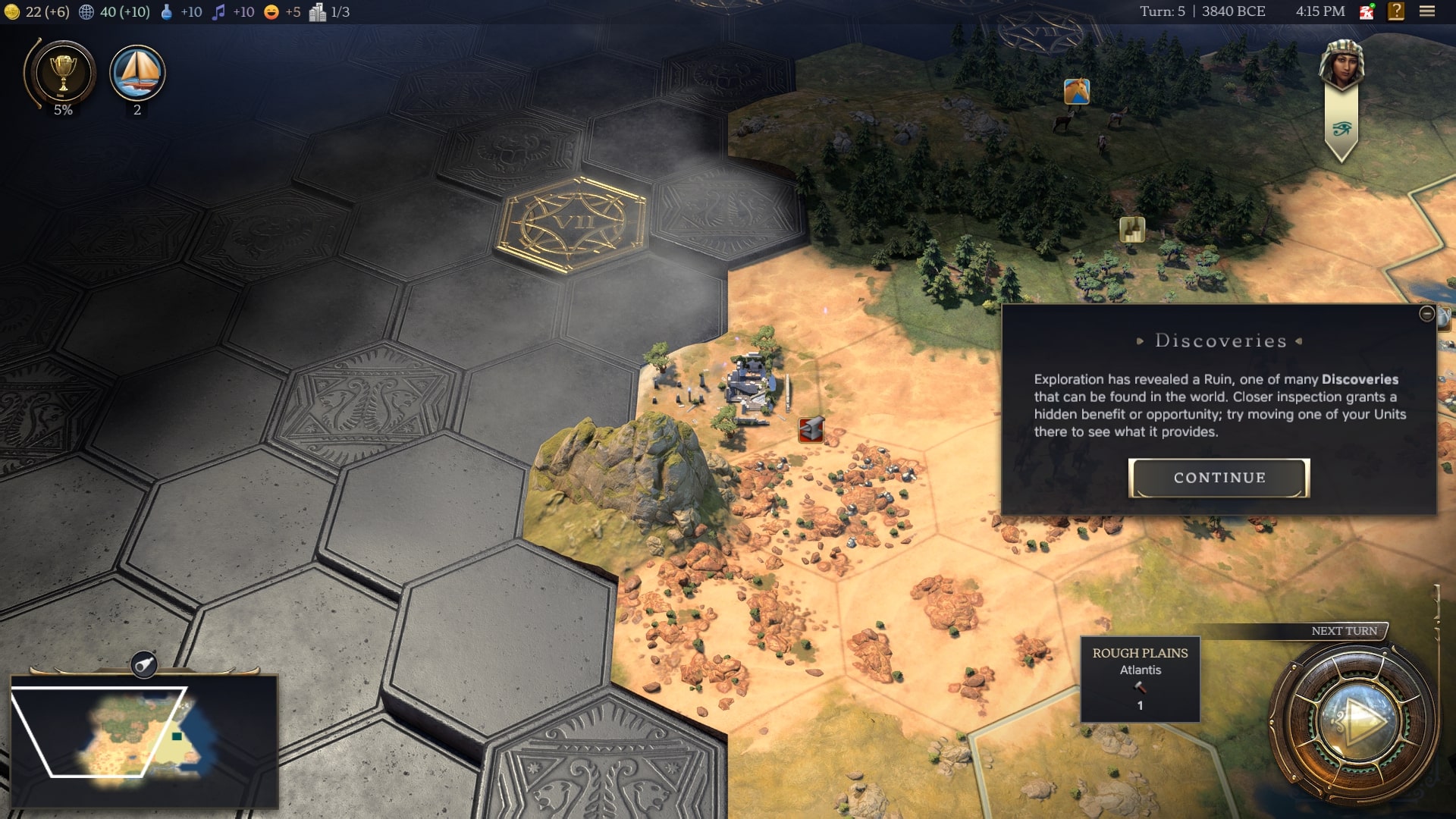
While exploring with your scouts, pay careful attention to the resource tiles in your vicinity and plan accordingly. When expanding your city or founding new ones, it’s crucial to obtain technologies that utilize the resources you discover.
For instance, if your starting city is close to many food resources, focus on researching technologies that will enhance your food production. This can significantly boost your city’s growth in the early game, enabling faster expansion.
The same principle applies to other resources. If your city is near a wealth of production tiles, prioritize technologies that optimize those resources.
4. Expand Quickly and Early
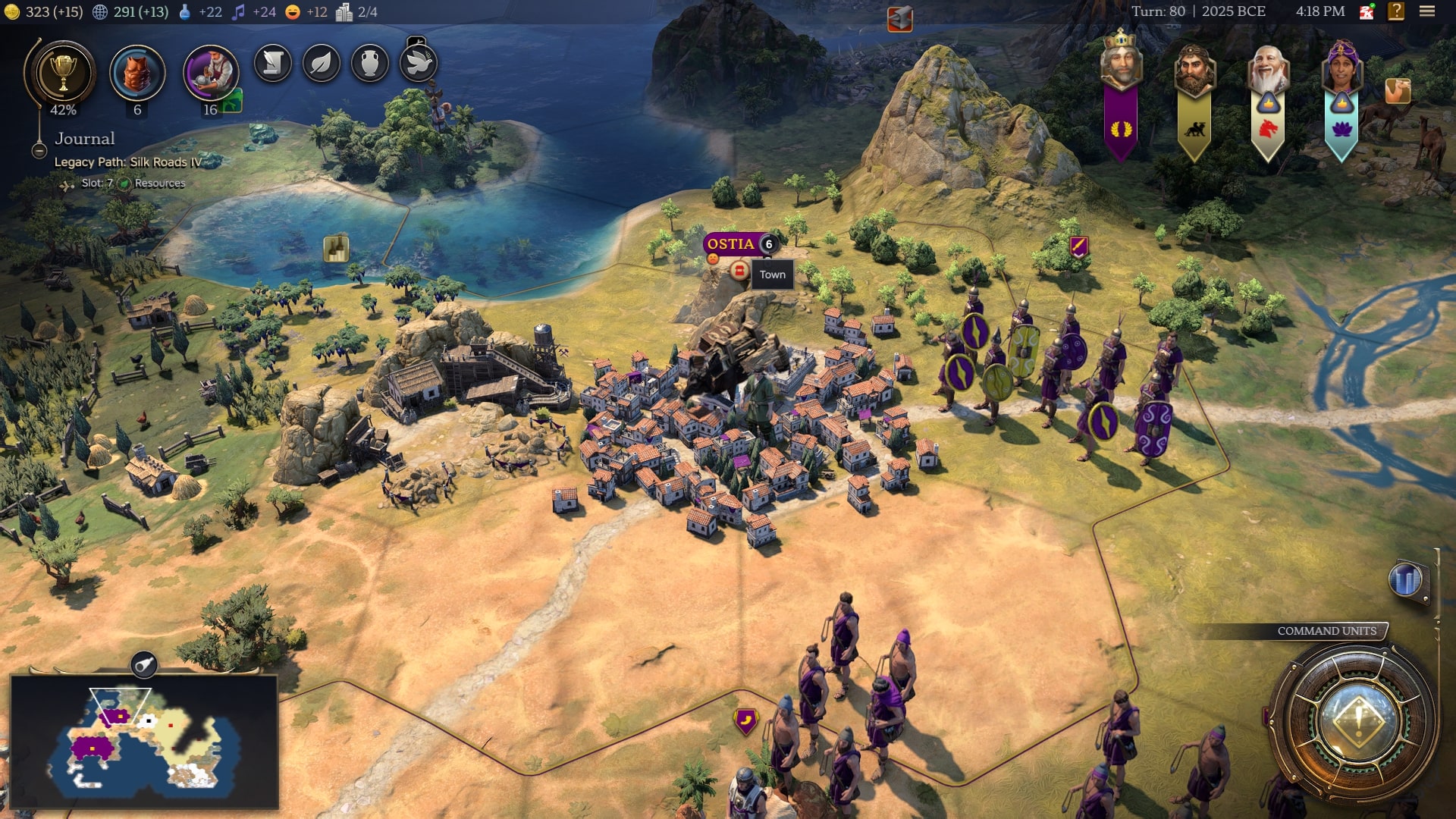
Understanding the nearby resources is key, but it’s equally important to know what’s missing. If there are critical resources that you can’t find nearby, it’s time to expand and establish new towns.
Having more towns significantly enhances your resource accumulation. Aim to settle at least two new towns by Turn 50. It’s best to position them on the same continent as your capital but on opposite coasts. This strategy becomes advantageous during the Exploration Age when you need to explore further beyond your initial area.
Remember, settling more towns is beneficial—as long as you stay within the settlement limit. Exceeding this limit will result in penalties.
5. Select a Legacy Path Early
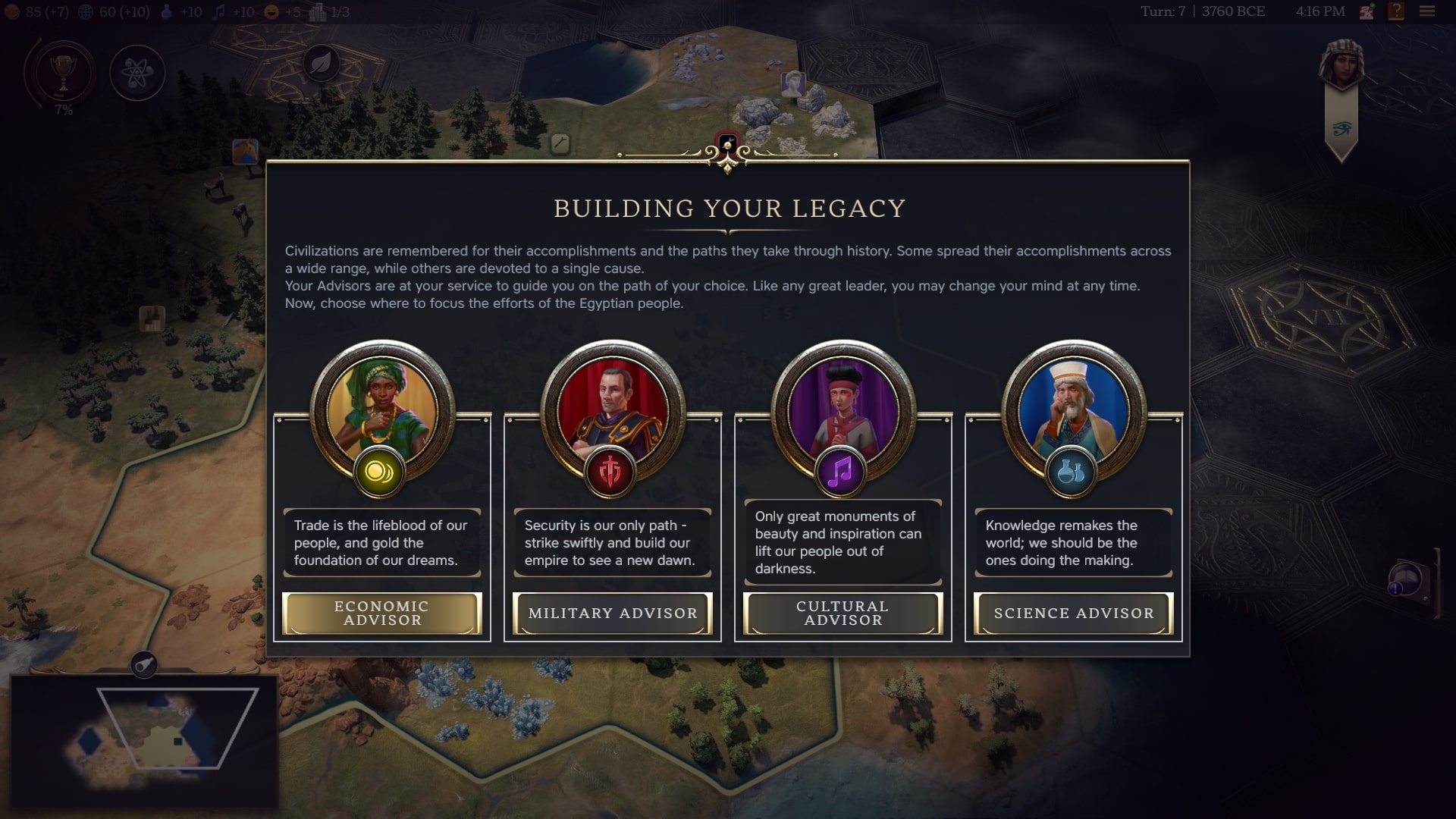
Civilization 7 includes Legacy Paths, which are essential for achieving victory. There are four main victory routes: Economy, Military, Culture, and Science. However, it’s essential to note that each age requires different objectives to complete.
The game comprises three distinct ages: Antiquity, Exploration, and Modern. Each Legacy Path offers specific goals for each age, and fulfilling them will impact your strategy in the subsequent age.
Sometimes, sticking with one Legacy Path across all three ages is the best approach, while at other times it may be advantageous to switch paths mid-game based on the specifics of your civilization and leader. Experimenting with different leader and civilization combinations is advisable to see how they affect your Legacy Paths.
6. Leverage Your Influence Points
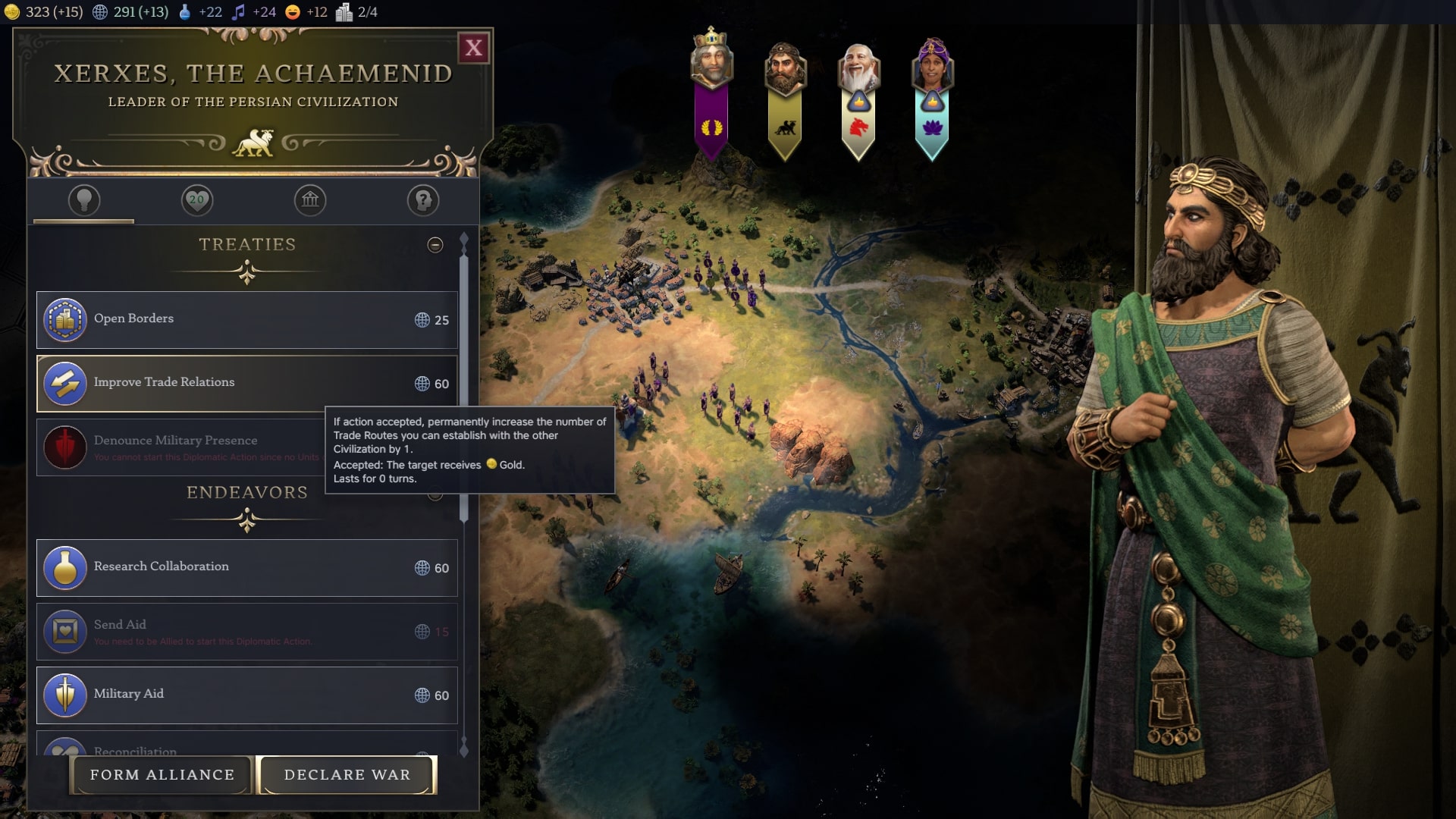
As you encounter other leaders, you’ll earn influence points that can help you enhance or diminish their opinions of your civilization. If you aim for a diplomatic victory, use these points wisely to maintain positive relationships. Building mutually beneficial diplomacy is often the key to avoiding conflict.
You’ll also come across independent factions as your scouts explore. Using influence points to befriend these factions will expand your civilization and provide additional bonuses.
7. Military Might Is Crucial, Even for Peaceful Players
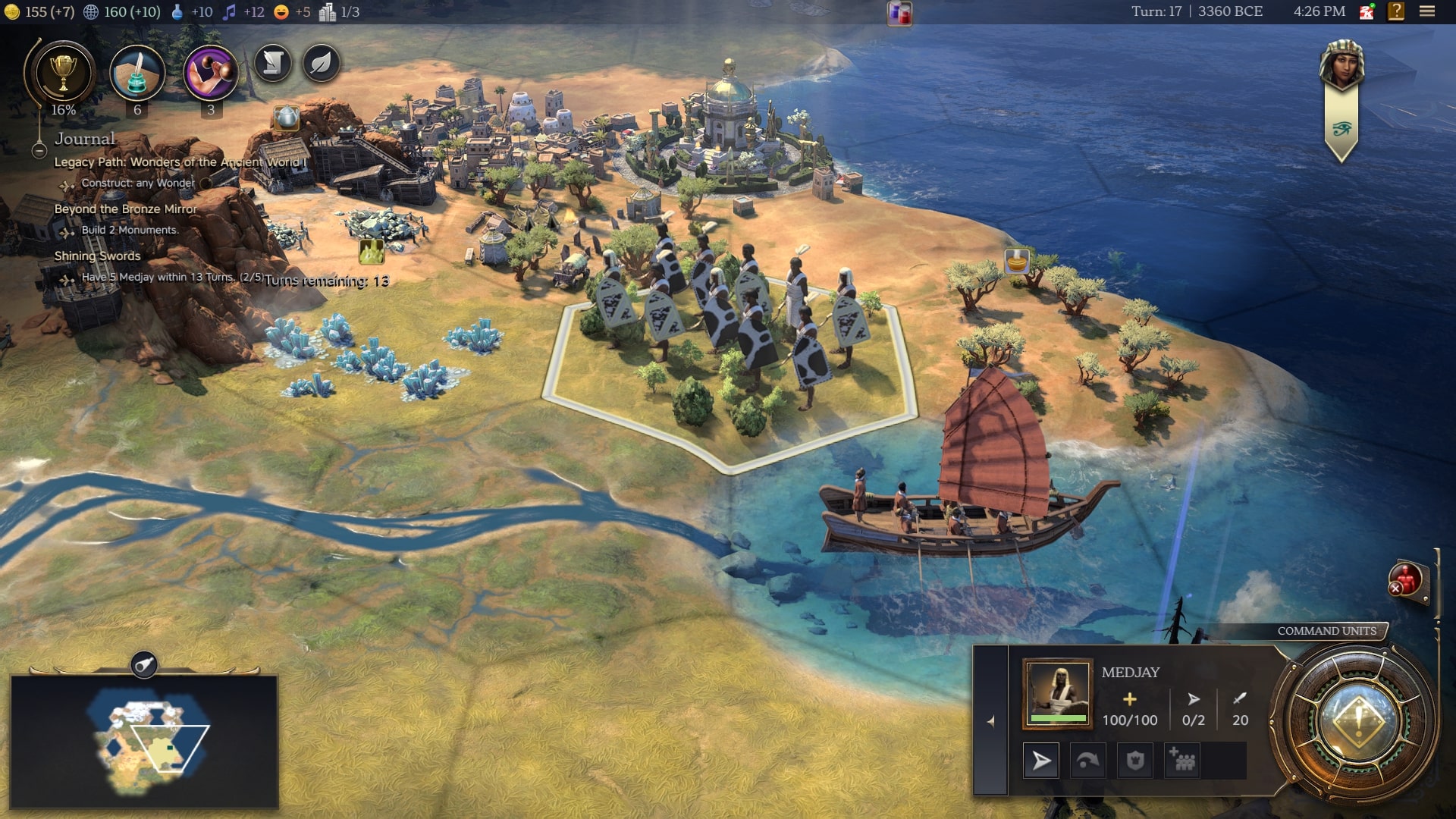
In general, the AI in Civilization 7 tends to be quite aggressive. So, even if you prefer a peaceful strategy, it’s a smart move to build a robust military for defense. Especially in the Antiquity Age, you may encounter hostile independent cities that could cause issues if you’re not prepared.
A new feature in Civ 7 is the addition of Commanders. They allow you to combine multiple units on a single tile, enabling enhanced movement and increased strength during combat against enemies.
8. Be Ready for Disasters
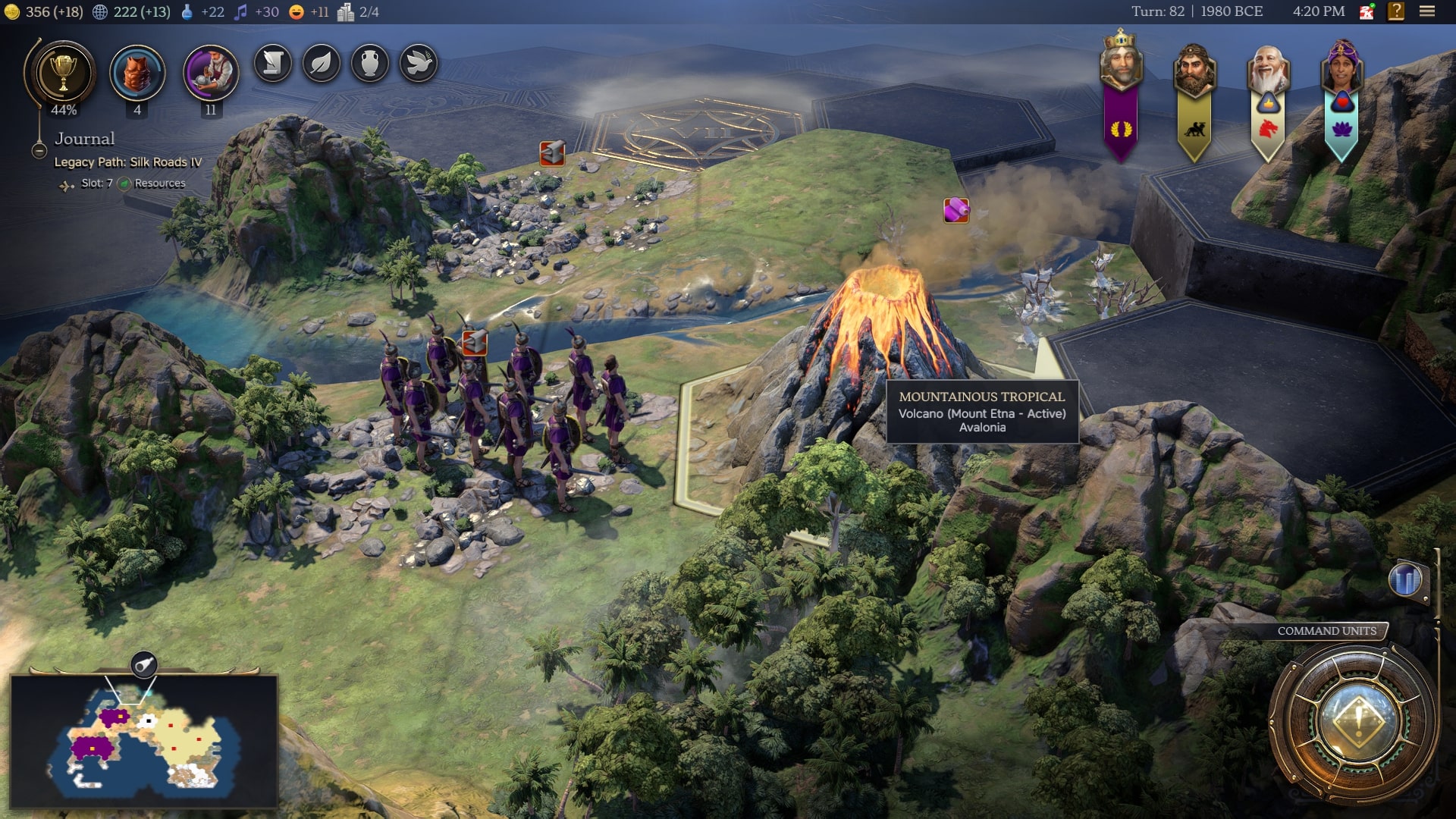
Being prepared for potential crises is crucial. This might mean an ally turning against you or facing a natural disaster that could damage your settlements and units. Your city could experience disruptions from blizzards, volcanic eruptions, floods, or other unexpected events. In such situations, it’s important to deploy your resources for repairing any affected tiles.
Moreover, when the Age reaches around 60%, every leader will encounter a crisis that must be addressed. This will show up in the Government screen, requiring you to select a social policy that may impose some form of debuff to your progress. As the age continues, this crisis will become more severe, so be ready to manage it effectively.
These are the top tips for starting your journey in Civilization 7.




